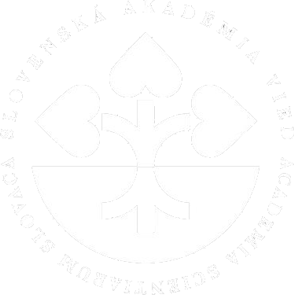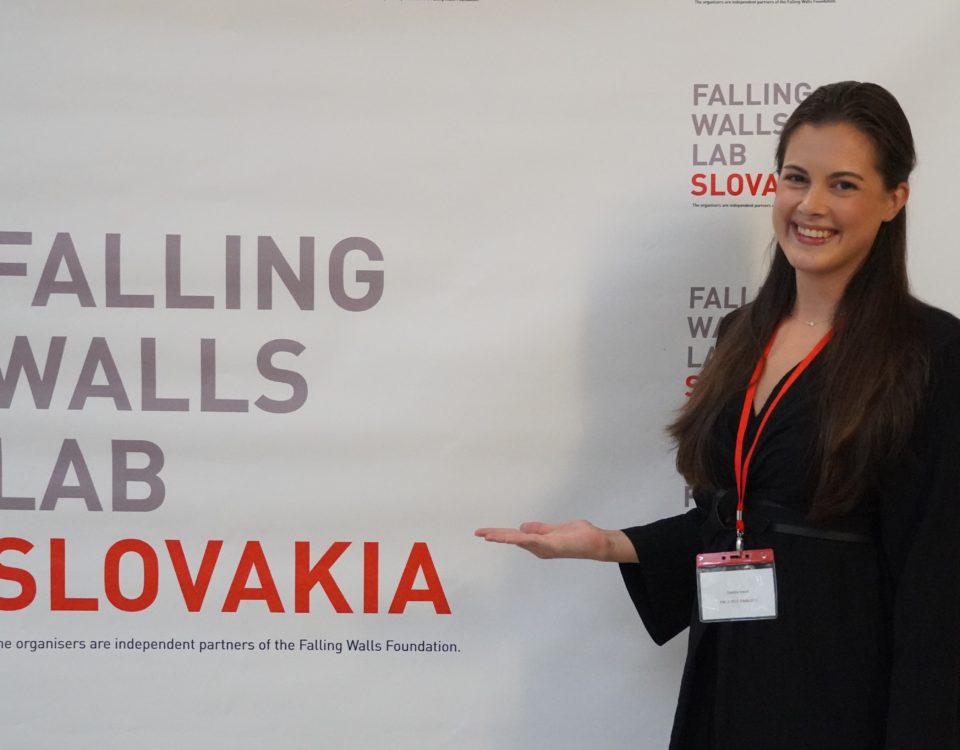This website uses cookies so that we can provide you with the best user experience possible. Cookie information is stored in your browser and performs functions such as recognising you when you return to our website and helping our team to understand which sections of the website you find most interesting and useful.
Scientists from the Biomedical Research Center of the SAS received a prestigious award
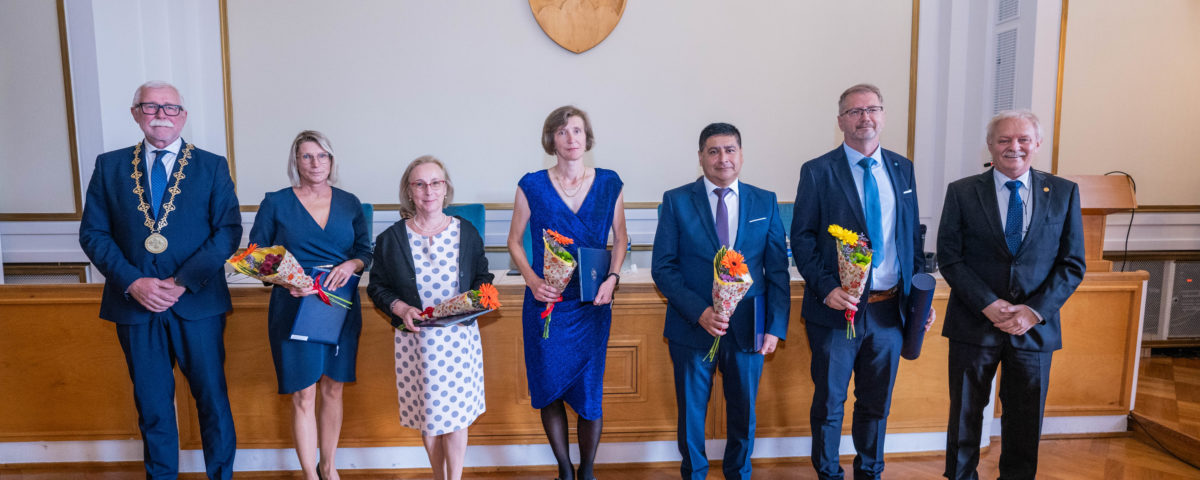
The awarded team Ing. Ľudovít Škultéty, DrSc. (second from the right) from the Biomedical Centre of the Slovak Academy of Sciences, v. v. i.: Mgr. Eva Špitalská, PhD., RNDr. Zuzana Sekeyová, PhD., Ing. Katarína Palkovičová, and Mgr.Marco Quevedo Diaz, PhD. with the President of SAV prof.RNDr. Pavel Šajgalík, DrSc. D., Ph.D. during the ceremony.
The Slovak Academy of Sciences awarded its most prestigious prizes. The SAV Award was also awarded to the team of Ing. Ľudovít Škultéty, DrSc. D., from the Biomedical Research Center of the Slovak Academy of Sciences, v. v. i., for his outstanding contribution in the field of innovations in the development of vaccines, diagnostic antigens and research on antibiotic resistance in rickettsial infections.
On 27 June, the most prestigious awards for scientists, women scientists and collectives – the SAV Prizes for 2023 – were awarded at the SAV Congress Centre at Smolenice Castle. The Academy presents these awards annually on the occasion of the anniversary of its foundation. In this way, the Academy honours the personalities and the best scientific results that have been produced in a given year. The awards also focus on research with a significant international impact.
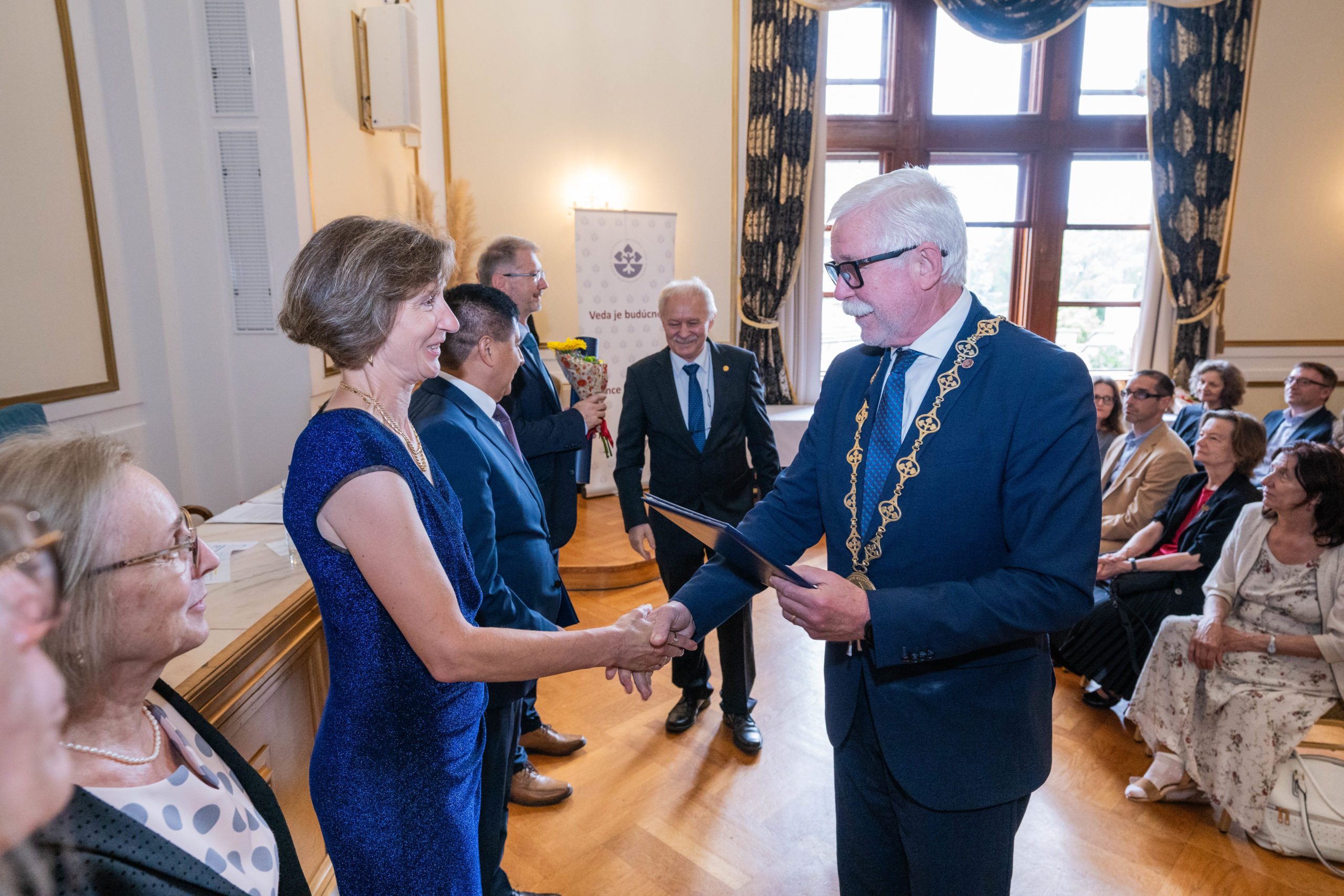
Awarding of the SAS Prize.
“The history of the SAV Awards goes back to the middle of the last century. Since then, the perception of science has changed. Today, society is increasingly aware that life in the 21st century makes us re-evaluate our attitudes and realise the importance of science for social and technological growth,” said the President of the Slovak Academy of Sciences, prof. Pavol Šajgalík.
“SAV covers all scientific disciplines, each of which has its place in society. I am glad that today, as every year, we have a lot to choose from when we appreciate the best achievements of our scientists,” he added.
The awards were presented to outstanding personalities of science in four categories.
The SAV Prize for the results of scientific research work was awarded to the team of Ing. Ľudovít Škultéty, DrSc. Mgr. Eva Špitalská, PhD., RNDr. Zuzana Sekeyová, PhD., Ing. Katarína Palkovičová, and Mgr. Marco Quevedo Diaz, PhD. for outstanding contribution in the field of innovation in the development of vaccines, diagnostic antigens and research on antibiotic resistance in rickettsial infections.
They resist antibiotics
Rickettsiae and rickettsiae-like microorganisms, such as chlamydiae or Coxiella burnetii, are small bacteria that reproduce only inside the cell, like viruses. They cause zoonoses, diseases that are transmitted from animals to humans. The carriers are mainly ticks, fleas, mites and lice. However, Coxiella burnetii is mainly spread by air, like SARS-CoV-2, which caused the last pandemic.
The most well-known diseases caused by rickettsiae and rickettsiae-like microorganisms include typhoid fever, Rocky Mountain fever, chlamydial infections, and Q fever.
Currently, according to Dr. Ludovít Škultéty, these infections do not attract media attention, as the problems with them are mainly prevalent in less developed parts of the world, but they also occur in developed countries.
It is often overlooked, according to him, that throughout the history of mankind, Rickettsia and Rickettsia-like micro-organisms have claimed the lives of hundreds of millions of people. Of course, this was at a time when we did not know antibiotics and lived in poor social conditions.
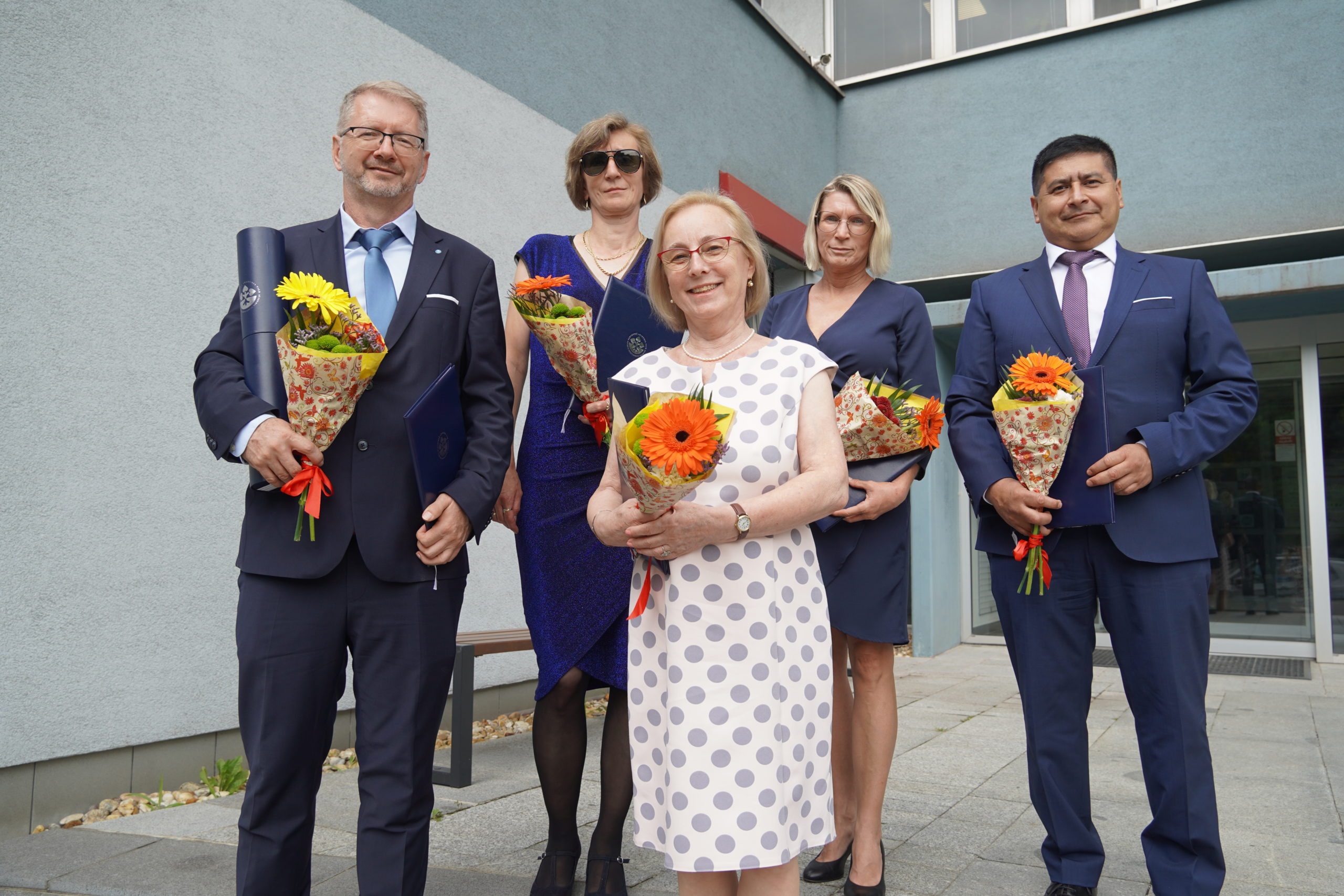
Dr. Škultéty’s award-winning team.
“However, there are now resistant strains that can withstand multiple doses of antibiotics,” explains Dr. Ľudovít Škultéty. “Although we havenot yet seen aggressive multidrug-resistant forms of these bacteria, it is only a matter of time. Therefore, we need to be prepared and improve diagnostics, as well as look for alternative treatments to antibiotics.”
His scientific group is therefore also dedicated to the study of antibiotic resistance. They are trying to understand pathogen transmission and the changes induced by the invasion of these bacteria into the host.
At the same time, they are developing new universal diagnostic antigens and making early and accurate diagnosis through the National Reference Centre for Surveillance and Laboratory Diagnosis of Rickettsioses in Slovakia, which operates at their facility.
Light treatment
They are also looking for suitable molecules that could be targeted for alternative treatments. For rickettsiasis, photodynamic therapy is the hope. This involves applying harmless substances to the skin and shining light of a certain wavelength on it. These substances then convert the oxygen present into oxygen radicals, which destroy mainly bacterial cells.
Dr. Škultéty is one of the leading personalities of the Academy of Sciences in the field of microbiology and biochemistry, specializing in structure-function analysis of biomarkers using advanced mass spectrometry techniques.
He is the author of more than one hundred scientific papers in peer-reviewed, peer-reviewed journals, four book chapters and more than two hundred presentations at international and national scientific conferences and symposia. His papers have been cited more than 1,500 times.
List and photo gallery of all the awardees: https://www.sav.sk/?lang=sk&doc=services-news&source_no=20&news_no=12038
Text: Ľ.Škultéty, DrSc., BMC SAS; Ela Rybárová, BMC SAS
Photo: M. Bystriansky; E. Rybárová, BMC SAS






